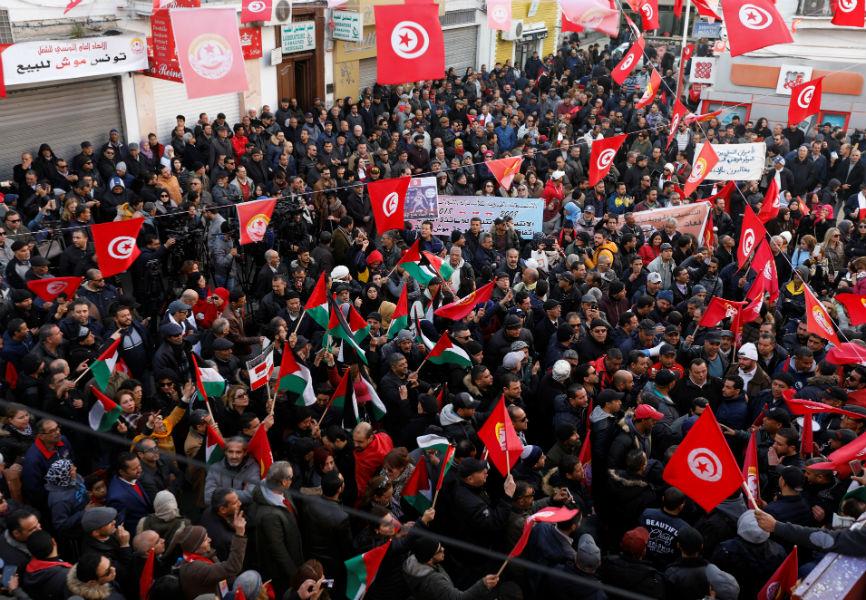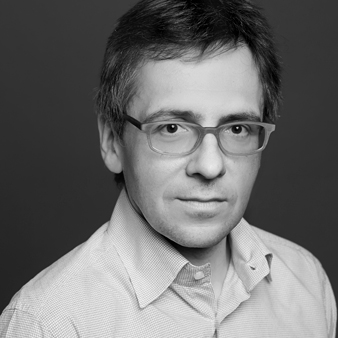Tunisia will forever be remembered as the birthplace of the Arab Spring in 2011. That has been both a blessing and a curse for the country.
The upside is that democracy and reform have become focal points of national pride in a region badly in need of both–especially after the architects of the transition won the Nobel Peace Prize in 2015. The downside is that Tunisia's halting progress continues to disappoint those who hope others will follow its path. Egypt's retreat into dictatorship, Libya's fragmentation and Syria's catastrophic war make Tunisia that much more important for those who insist that the awakening continues.
Eight years after the uprising, many Tunisians are angry at how their newly democratic state is faring. The unemployment rate for graduates is about 30%. For those who have jobs, wages remain stagnant, and GDP per capita is down since 2014. Tens of thousands have fled the country in search of better prospects. Little wonder then that demonstrations have become commonplace in recent years. According to the Tunisian Forum for Economic and Social Rights, their number has surged from 5,001 in 2015 to more than 11,000 last year.
The most recent, at this writing, came on Jan. 17, when Tunisia's largest labor union staged a nationwide strike to demand better pay for state employees. Timed to mark the democratic uprising's anniversary, it was joined by hundreds of thousands of workers and brought much of the country's rail, road and air traffic to a halt. Work in schools, hospitals and state-run media slowed. This follows the self-immolation of a journalist in December, an act of desperate protest echoing the public suicide of vegetable vendor Mohammed Bouazizi in 2011, the spark that ignited the revolution.
The unrest puts Prime Minister Youssef Chahed in a tight spot. His country badly needs foreign investment, and the International Monetary Fund (IMF) remains the most promising source of needed cash. The catch is that the IMF wants Chahed to prove he'll keep state spending within recommended limits.
But this is an election year in Tunisia, and the Prime Minister knows he can't afford to ignore demands from frustrated civil servants for better pay, or risk taking tough decisions when the results won't be seen until after votes are cast. At the same time, street unrest will discourage investment. And protesters demanding that the government tackle rising corruption, reduce income inequality and create jobs won't be easy to placate.
This isn't yet a crisis. IMF officials understand Chahed's predicament and want him to succeed, and the fund will probably follow its criticism of his government with more financial support. After another few weeks of fist shaking, the unions will likely end up coming to a compromise with the government. Tunisia and its Prime Minister will all but certainly muddle through. That's hardly a ringing endorsement for democracy, though–particularly in a part of the world where leaders aren't eager to share power and few citizens have ever experienced democracy's benefits.
The Arab Spring succeeded in producing at least one country that's building authentically democratic institutions and holding free and fair elections. But with each passing year, the glow of that achievement dims and demands for prosperity and fairness grow more urgent. If they are not met, then one day Tunisians might decide the revolution–and all it ushered in–was more curse than blessing.
This article was originally published on TIME.com.

 People gather during a nationwide strike against the government's refusal to raise wages in Tunis, Tunisia January 17, 2019. REUTERS/Zoubeir Souissi
People gather during a nationwide strike against the government's refusal to raise wages in Tunis, Tunisia January 17, 2019. REUTERS/Zoubeir Souissi
